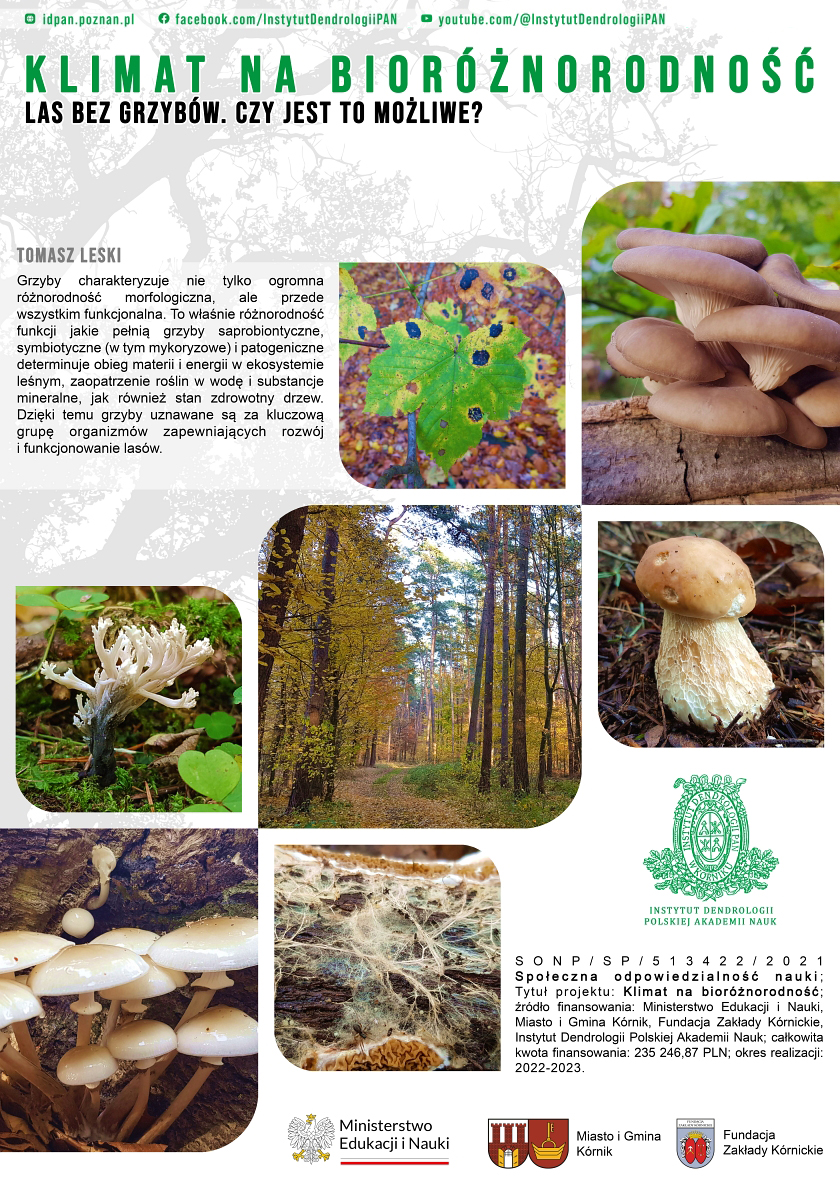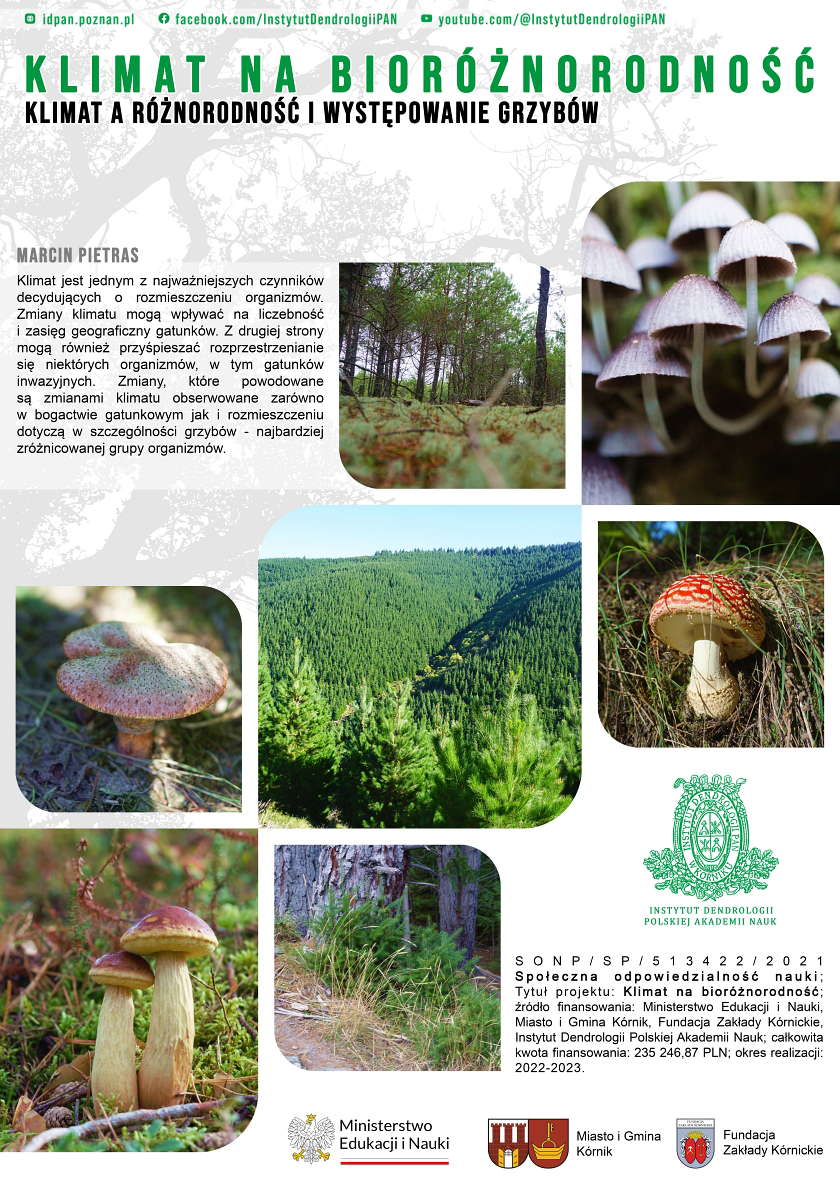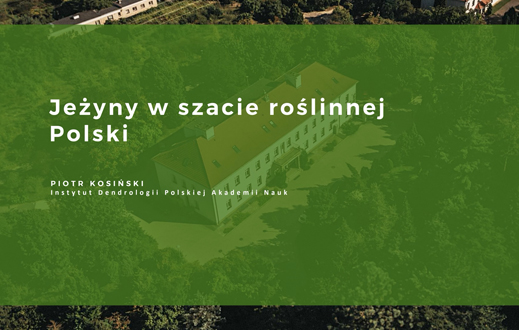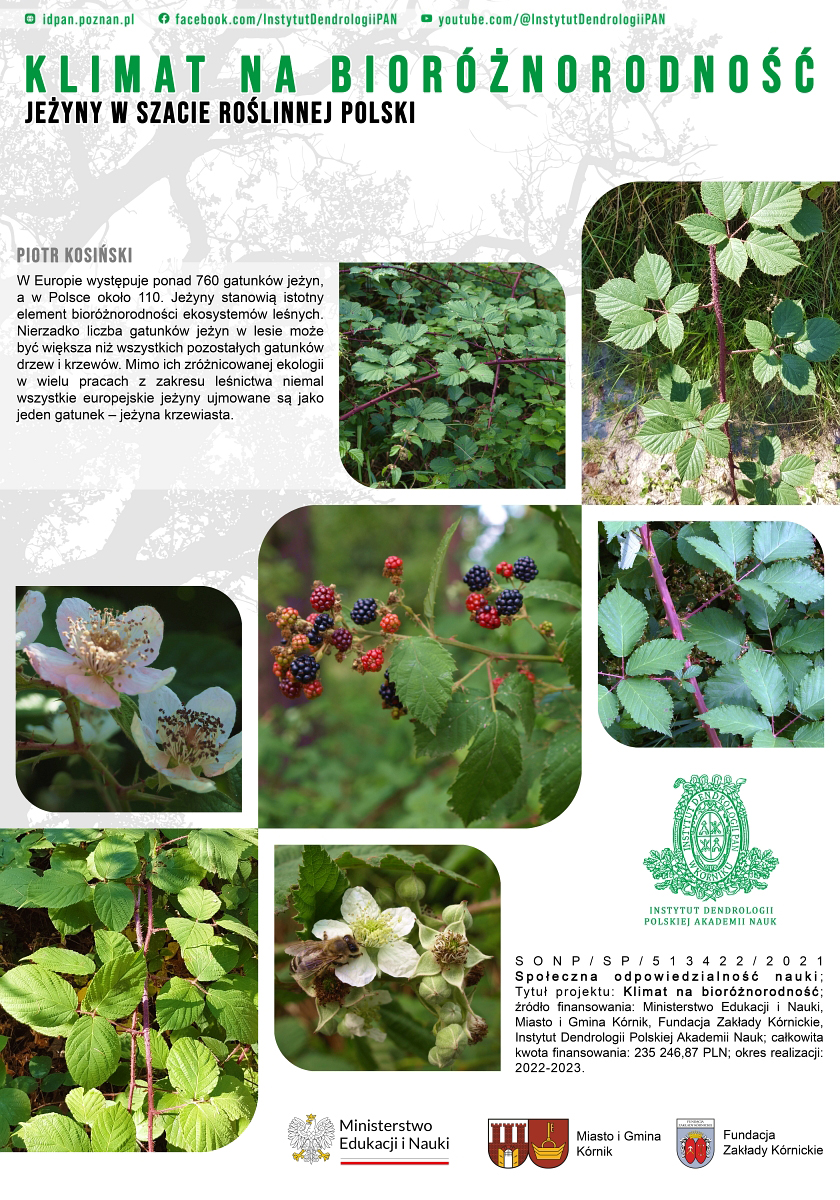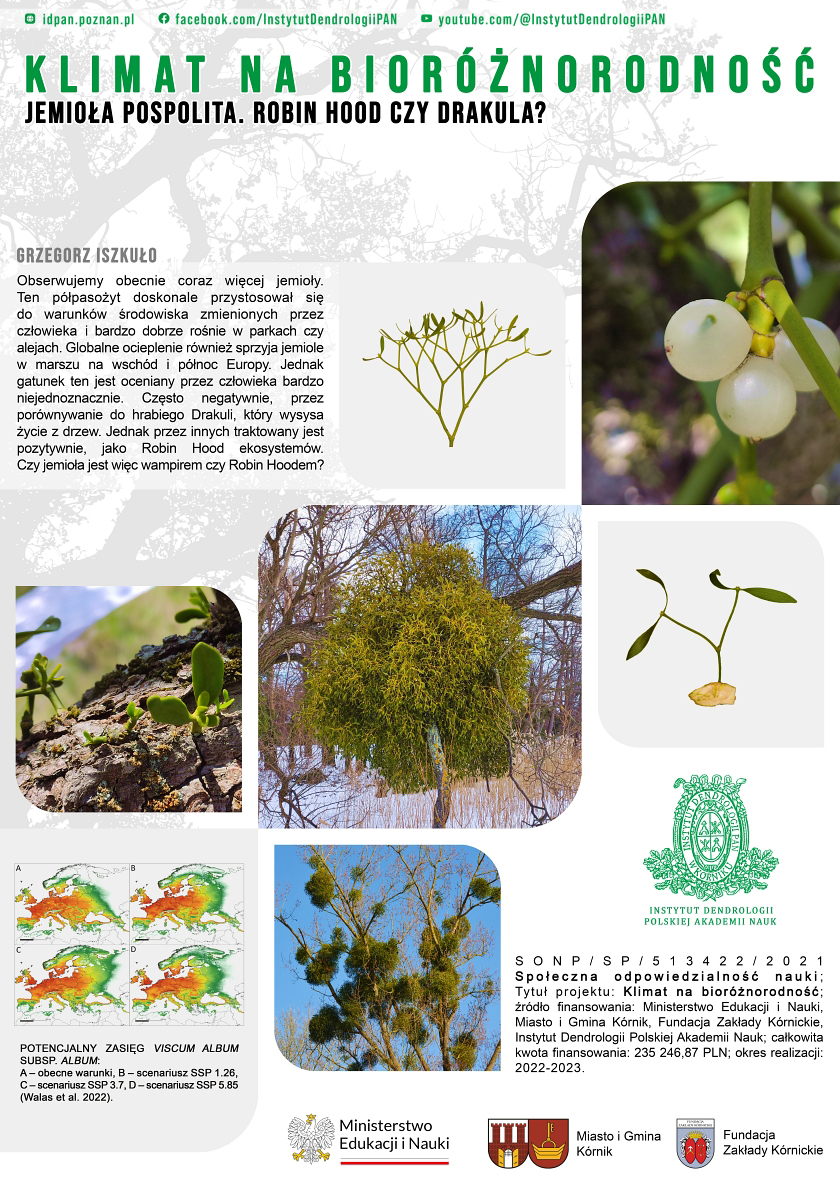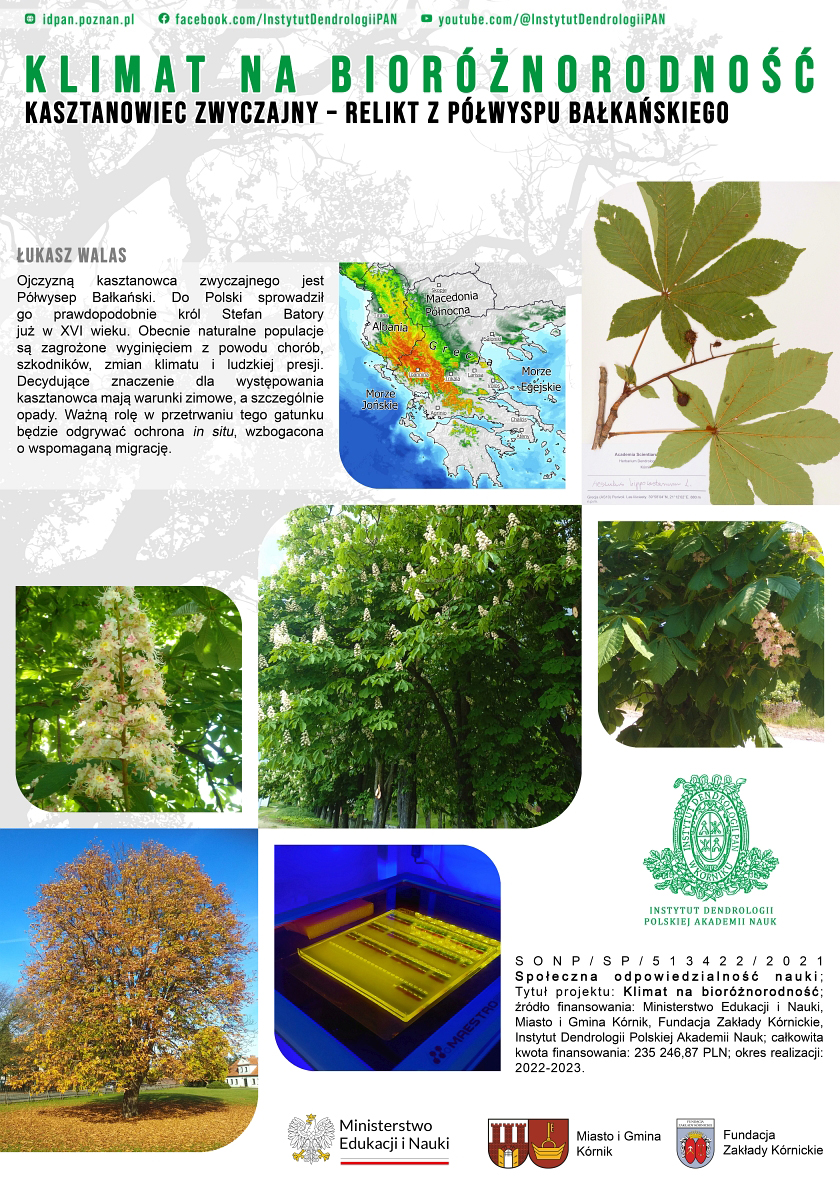We invite you to listen to Prof. Tomasz Leski’s lecture entitled “Forest without fungi. Is it possible?”
Fungi are characterized not only by great morphological diversity, but first of all functional diversity. This diversity of functions performed by saprobiontic, symbiotic (including mycorrhizal) and pathogenic fungi determines the flow of matter and energy in the forest ecosystem, provision of water and minerals to plants, as well as the health status of trees. As a result, fungi are considered as a key group of organisms that ensure the development and functioning of forests.

We invite you to listen to Prof. Marcin Pietras’s lecture entitled “Climate and the diversity and distribution of fungi.”
Climate is one of the most important factors determining the distribution of organisms. Climate changes can affect the abundance and geographic range of species. On the other hand, they can also accelerate the spread of certain organisms, including invasive species. The changes caused by climate change observed in both species richness and distribution particularly affect fungi - the most diverse group of organisms.
We invite you to listen to Dr. Piotr Kosiński’s lecture entitled “Brambles in the plant cover of Poland."
There are more than 760 species of brambles in Europe, with about 110 species found in Poland. Brambles play a significant role in enhancing the biodiversity of forest ecosystems. Interestingly, it is not uncommon for the number of bramble species within a forest to exceed the combined count of all other tree and shrub species. However, despite their ecological diversity, many forestry studies tend to classify all European brambles under a single species (Rubus fruticosus).
We invite you to listen to Prof. Grzegorz Iszkuło’s lecture entitled “Common Mistletoe. Robin Hood or Dracula?”
We are currently observing more and more of the mistletoe. This semi-parasite has adapted well to the environment altered by humans and grows very well in parks or alleys. Global warming also favors mistletoe in its march to the east and north of Europe. However, the species is evaluated very ambiguously by people. Often negatively, by comparing it to Count Dracula, who sucks the life out of trees. But by others it is treated positively, as the Robin Hood of ecosystems. So is the mistletoe a vampire or Robin Hood?
We invite you to listen to Dr. Łukasz Walas’ lecture entitled “Horse chestnut - a relic from the Balkan Peninsula”.
The homeland of the horse chestnut is the Balkan Peninsula. It was most likely brought to Poland by King Stefan Batory as early as the 16th century. Today, natural populations are threatened with extinction due to disease, pests, climate change and human pressure. Winter conditions, especially precipitation, are decisive for the horse chestnut's existence. In situ conservation, enriched with assisted migration, will play an important role in the survival of this species.












